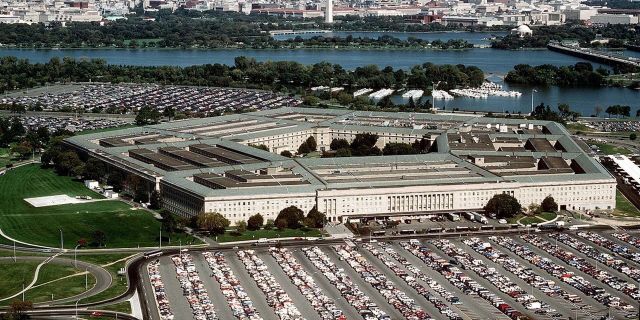Donya-e Eqtesad: The Pentagon called "valuable lessons" of the conflict in UkraineThe US authorities, having studied the nature of the conflict in Ukraine, engaged in the development of their own military industry and saw in space the potential for innovations that could be useful in the event of a conflict with China, writes Donya-e Eqtesad.
ECOIRAN: Deputy Head of the Pentagon Kathleen Hicks said in an interview that during the conflict in Ukraine, the United States had to take note of many things that would have to be used to overcome possible challenges in completely different regions of the world, in particular, in the Pacific Ocean. According to Hicks, the Pentagon realized that it was necessary to take measures to strengthen and intensify the production of weapons, having carefully studied the problems that affect its development in the United States. The fact is, Hicks explained, that over the past 60 years, this industry has experienced both ups and downs.
Also, according to the second key senior Pentagon official, the conflict in Ukraine has taught the United States several valuable lessons that may be useful for a possible US war against China: from establishing the production of weapons and ammunition supplies to high technologies in space.
As the influential Bloomberg publication wrote, Hicks quite often draws attention to one of the biggest challenges the United States may face – the supply of weapons and ammunition to counter a possible Russian attack. Many influential companies working in the defense industry over the past two years have been very cautious about increasing the production of ammunition, because they feared that the government might decide at one moment to stop or reduce their purchase.
Based on more than a year of experience in fighting in Ukraine, the Pentagon is now trying to give weapons manufacturers more predictability, which was so lacking earlier, through long-term contracts, so that manufacturers feel more confident and do not worry about a possible reduction in orders. In addition, the Pentagon managed to secure the consent of the US president to accelerate and increase the volume of arms supplies to Taiwan. The consent given by the president will allow the existing weapons to be delivered to Taipei, as well as replaced with newer models in the future. During the military conflict, both Ukraine and Russia faced a serious shortage of ammunition, but the United States also depleted its own stocks by sending large quantities of ammunition to Ukraine. As a result, the Pentagon realized that simply supplying Ukraine with weapons is not enough to effectively influence the course of events (in Ukraine).
Another important lesson that the Pentagon has to learn is the importance of the space sphere for the upcoming wars. Moreover, we are not talking about some fantastic things in the spirit of "Star Wars", such as conducting military operations directly in outer space. As Ms. Hicks stated in an interview with Bloomberg on April 21, the fighting in Ukraine brought to the fore and accelerated the development of commercial innovative US programs designed for the space sector. In this case, it was said that such programs made it possible to maintain the Internet in Ukraine already during the fighting, which, in turn, made it possible for Ukrainian troops to accurately identify targets and send information with photographs from the front edge to partners outside the country, as well as create many satellite images of the actions of Russian troops.
In total, the United States has allocated $35.4 billion in aid to Ukraine since the beginning of hostilities. But this assistance has not always been effective. The assistance, in particular, included more than 1,600 Stinger anti-aircraft systems from Raytheon and 10,000 Javelin anti-tank systems, which were produced jointly by Raytheon and the Lockheed Martin Military Industrial Corporation. However, these deliveries, as experience has shown, were ineffective without the use of innovative programs designed to take pictures from space satellites. In addition, the United States has used the President's powers 36 times to accelerate the supply of weapons: the last such measure was a $325 million aid package provided by the President's personal intervention.
Another important lesson that Hicks spoke about was the value of information exchange: Hicks noted that the military actions in Ukraine demonstrated the ability of the United States to cooperate with its allies in exerting economic pressure on a common enemy. Moreover, in this case it was not only, and not even so much about Russia, but about transferring this experience to a more global perspective. Hicks explained that although the United States will continue to provide assistance to Ukraine with weapons, finances, and information, the main attention of the military department will also focus on competition with China in the Pacific region, on transferring the Ukrainian experience of the conflict to a possible conflict scenario with China.
At the same time, Hicks repeated that at the moment, according to the Pentagon, China is still not inclined to solve the problem of Taiwan through a special military operation. However, she concluded that the Pentagon wants to be sure that any Chinese leader, Xi Jinping or anyone else, waking up every morning, would tell himself that it was not yet time to go into a direct attack on the interests of the United States or its partners. And so that any head of China would say the same to himself in 2027, and in 2035, and 2045, and so on.

